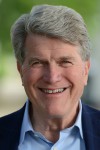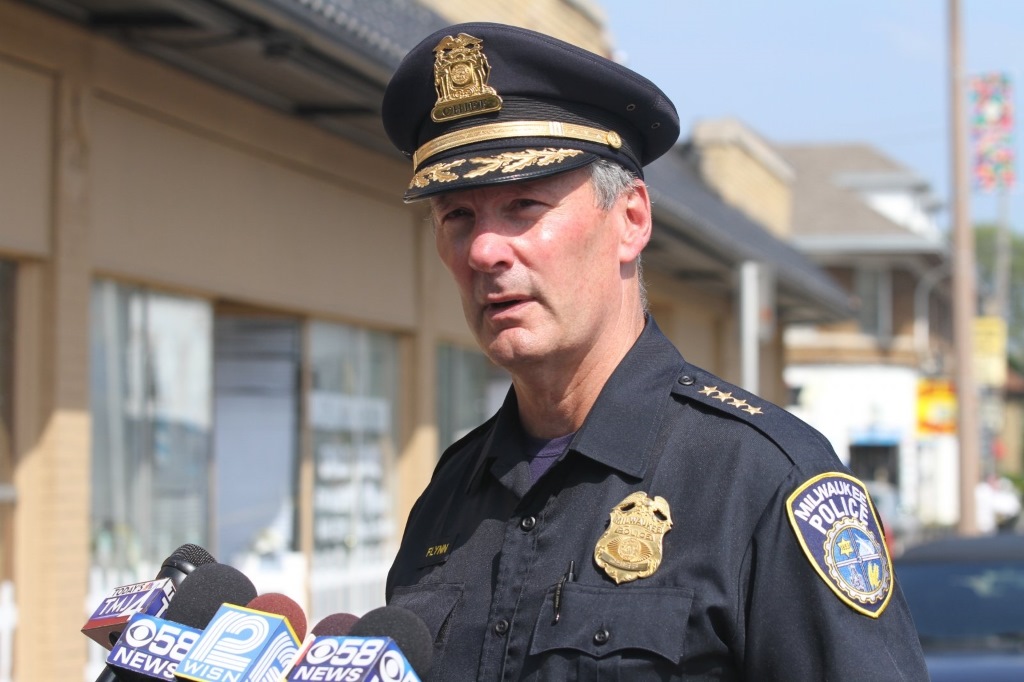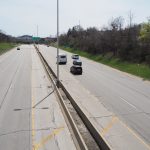Barrett Must Overrule FPC Pursuit Order
Fire & Police Commission ignored century of precedent by demanding Flynn alter pursuit policy.
The Police and Fire Commission recently issued a directive to Milwaukee Police Chief Ed Flynn to change the pursuit policy of the MPD. Under the directive, the MPD would be required to continue high speed pursuits of automobiles under some circumstances, including some cases of reckless driving. Mayor Tom Barrett has the option to overrule this directive. He should overrule it for the following reasons.
The Commission directive ignores more than 100 years of common law and police reforms that were implemented to correct prior abuses. At common law, the police were permitted to use deadly force against a fleeing felon, but not against a fleeing misdemeanant. In other words, they could use deadly force against a fleeing burglar, but not against a fleeing shoplifter. They were never privileged to use deadly force for a traffic violation.
A high speed pursuit with modern automobiles is the use of deadly force. Chasing someone at 80 miles an hour through a red light at 76th and Capitol is more likely to kill someone than firing a rifle through that intersection.
The common law has been modified by most police departments over the years, for obvious reasons. At one time, for instance, Virginia police would shoot and kill fleeing moonshiners, even though they had committed no violent act, and could have been arrested later. Under the reforms that resulted, a wide range of police discretion was recognized, and deadly force, including high speed pursuits as well as the use of weapons, was limited to truly dangerous circumstances where it was necessary to arrest violent felons.
The whole element of police discretion is not discussed by most people. In fact, police officers are no different from doctors and lawyers in their use of professional discretion. They have one of the most difficult jobs in society.
There are many methods and technologies to arrest drivers later, even drivers of stolen cars. These include calling ahead for interception; video cameras; enhanced penalties for fleeing to deter it; and many others.
Historically, directives from police and fire commissions tended to order a reduction in the use of deadly force by police departments, not to order its use for traffic offenses. And these directives were not always obeyed. For instance, after various police actions in the 1960’s, Milwaukee Police Chief Harold Breier refused to order his officers to wear identifying badges on the grounds that badges could be ripped off and used as weapons. The Common Council then passed a resolution ordering him to sew on cloth badges. He still refused to comply.
A more detailed description of the evolution from the common law to modern policing practices is set out in an article I wrote, Police Discretion in Wisconsin, 1974 Wisconsin Law Review 1131. That article has been used as course material at the University of Wisconsin Law School, and is cited in the Wisconsin Statutes as reference material on the role of the Milwaukee police chief.
Chief Flynn is one of the finest police chiefs in the country, and we got him here with great difficulty. It involved a national search, and work by national policing experts. He is one of the few police chiefs in the country who has the stature, ability, and reputation to be the chief in New York, Chicago, Los Angeles, Atlanta, Boston, or any other large city. He is reportedly looking for alternatives, in light of this directive from the Police and Fire Commission. But to replace Flynn with a less experienced police chief will result in an increase of deadly force by MPD. Our entire city should let him know that we appreciate his service, and that we recommend to the Mayor that he overrule this undoubtedly well-intentioned but flawed directive.
Matthew Flynn is a Milwaukee attorney.
Political Contributions Tracker
Displaying political contributions between people mentioned in this story. Learn more.
- November 13, 2017 - Tom Barrett received $100 from Matt Flynn
- May 16, 2017 - Tom Barrett received $400 from Matt Flynn
- December 28, 2015 - Tom Barrett received $500 from Matt Flynn
Op-Ed
-
Why Vote for MPS Funding Referendum
 Mar 30th, 2024 by Nehemiah Edwards
Mar 30th, 2024 by Nehemiah Edwards
-
Wisconsin’s Very Own Rudy Giuliani Should Not Oversee Judicial Ethics
 Mar 25th, 2024 by Richard Niess
Mar 25th, 2024 by Richard Niess
-
Voting at Wisconsin’s Universities Isn’t Easy
 Mar 17th, 2024 by Nicole Laudolff
Mar 17th, 2024 by Nicole Laudolff


















THIS. ISN’T. WORKING.
Car jackings are skyrocketing, and it’s because criminals know they can get away with it. Something needs to be done.
Good article. I think the FPC has moved beyond its competence.
Jerad, I would be reluctant to assign causality without more info
Flynn should have gone after the DA’s office for lax prosecution, and judges for pathetic sentences for fleeing. It is a 2 year felony, prosecute it as such
The foundation of your argument is fundamentally false. Police officers do not cause the outcomes of offenders who flee, they chase people who are willing to risk their lives (and others) to escape and commit a felony in the process. When an offender crashes and is killed, it is not the equivalent of an officer pulling the trigger of a service weapon. Chief Flynn, is not defending the policy by saying officers are responsible for the actions of the offenders who cause a crash during a pursuit, and nor should you. As a matter of law, responsibility was placed on the offender, not the police, by the Supreme Court a long time ago with few exceptions.
Additionally, you are assuming when police don’t chase, people slow down and crashes won’t occur, or will occur less. Yet the number of fatal crashes are up, not down, and the number of people using cars to commit violent crime is way up. In fact, the use of cars in the commission of crimes has become so frequent, there are more pursuits now than there were before the policy existed–and every one of them for violent felonies. Today, a rape or robbery can be committed and the driver can flee without fear if the victim does not–or cannot–see the car the offender fled in.
What’s more, what happens when people who drive at 80 mph on city streets don’t get chased has become quite clear–they drive fast and reckless more often, and with impunity. Some crash, some scrape, and some simply disappear as they create a sense of lawlessness on the street and in the community. Some steal cars and race around the city without fear of arrest, and have been known to wave at officers as they go by. And it gets worse. Fatal crashes are up, not down as the data does (or will eventually) show. Police officers see the problems created by the policy and are reluctant to write tickets because they don’t think its fair to write a ticket to the poor slob who was speeding but still willing to stop to receive the ticket. Hmm…and what is the incentive to stop? The policy actually works in the favor of the criminal, much like Chief Flynn’s frequent target, the juvenile justice system. Apparently, if the police don’t chase juveniles, they won’t have to be released before the ink on the arrest reports are dry.
Though Chief Flynn has made a career using data to justify crime reduction strategies, this time he cannot. Though the data to show his policy failure is perpetually unavailable, the emotional arguments he makes are not supported by careful analysis of existing pursuit data. And maybe someone will force some data to be collected (God forbid).
The truth is, due to severe unanticipated consequences, his pursuit policy failed. The public roadways are far more dangerous, and the community has assumed far more risk than when police officers pursued fleeing vehicles. When the hue and cry for a recognition of the policy failure came, Chief Flynn used data in a manner that put the “art” in “articulation” and the problem got messier.
The simple reality is Chief Flynn became overly risk-averse and shifted the risk associated with pursuits from his department to the community. And it was felt.
After the realization that the police will not chase if you don’t stop, some streets of the city became raceways and are now avoided even by police officers due to the recklessness which has become the new normal. And by not dealing with this massive policy failure, the chief essentially forced the Fire and Police Commission to consider a different approach to achieve their political objective. Right or wrong, they forced the chief into a worst-case scenario for the formulation of police policy–they forced a change by edict.
Now as you might imagine, this is a strange position for Chief Flynn. After all, it has been his vision to, ” …Commit to
reducing the levels of crime, fear, and disorder through community-based, problem-oriented, and data-driven policing”. But therein he was unmasked. It was the community whose high-pitched scream called for a policy change, and the Chief was tone deaf. Instead of a modest policy adjustment to appease the critics, the unthinkable occurred when the politicians became more community-oriented than the police department. And in the process, when Chief Flynn’s mask was removed, he looked a little more like a Chief named Harold Breier than a Chief named Bill Bratton.
Is this really true as in settled case law, no questions? I’ve long thought the change to the pursuit policy was to reduce liability risk to the city, apparently persons in their legal department don’t see it that way. Don’t forget, there’s criminal court and civil court…
Rich, it’s not as much a matter of liability as it is the belief that it would save lives. Unfortunately, the outcome was not as expected and police chases actually grew substantially after the policy was put in place.
I had two conversations recently with police officers. One, a friend of mine who is a cop in Milwaukee, was lamenting that kids drive off expecting them to not chase. Many even making sport of it. Then, even if caught, they know they’ll be let off with barely a slap on the wrist.
The second conversation was with my brother-in-law who is an officer in an Ozaukee County municipality. He related a recent story about a juvenile from Milwaukee who was caught after stealing a car in Milwaukee. He was released to the custody of his parents and then went and stole another car that same day, this time in Washington County.
After a lengthy pursuit, he crashed the car in my brother-in-laws municipality. The kid was incredulous that they chased him for so long. Then, going before a judge the same day, he was given a high bail that essentially barred him from release. Despite pleas from his family that school was starting soon, he’s still there to this day and likely looking at a significant sentence.
Now I have to wonder… after stealing a car the same day he was caught in Milwaukee… do you think he’ll make the same mistake of stealing a car in Washington or Ozaukee Counties? Thanks to the decision to stop the criminal by the cops and the decision of the judge to hold him accountable, I doubt it.
Flynn was in a tough situation. There was outcry after four people were killed in crashes involving squad cars chasing fleeing drivers. Now there’s outcry because people want officers chasing more frequently. If there are more crashes that take lives there will be more outcry about that. Cars were stolen before the policy change. If someone is of the mindset that stealing a car is a good idea, are they really going to stop before driving off and say “hey wait before I do this what’s the police pursuit policy?”
There’s been a lot written about this as many states and police departments seem to be grappling with what the best policy is. A story in Popular Mechanics has an interview with an officer in South Carolina who trains other officers on pursuits. He says that it is incredibly common for officers to support policies that allow them to chase as much as they want because they take it personally and get mad whenever anyone flees. That doesn’t mean it’s sound policy though.
Stories in papers in California, Ohio, Pennsylvania, and other states make it clear that there is a lot of concern over how many people are injured or killed in chases and concern that chases are too common (note that chases in Milwaukee went up in 2015 despite the new policy), but also that there is a range of opinion on what best practices are.